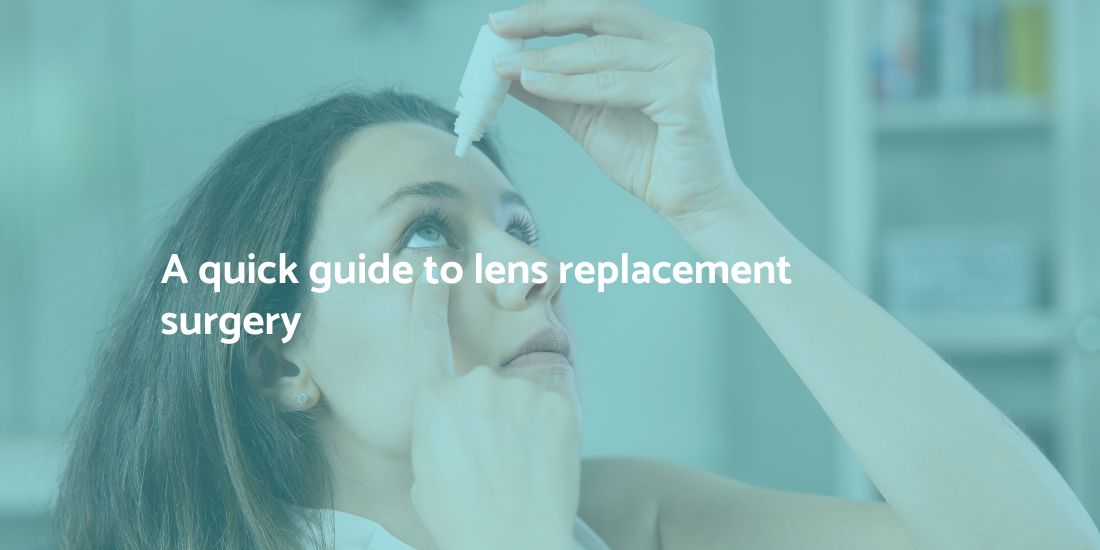Eye drops are practical, simple-to-use medical treatment for a range of eye conditions, as well as alleviating symptoms such as itchiness, burning, and discomfort in the eye. Eye drops are prescribed by an ophthalmologist to prevent eye infections or to aid recovery from surgery.
Prescribed eye drops should be used as directed. This is important because eye drops are formulated in a particular way for maximum safety and effectiveness. If they’re used improperly, at best they will be ineffective, at worse they could lead to adverse effects.
In this article, Gurjeet Jutley looks at some of the ‘Do’s and Don’ts’ to keep in mind when using eye drops.
The Do’s of Using Eye Drops
When using eye drops, there are certain things you should do to ensure that they work effectively and to minimise the risk of complications. These include:
- Store In A Cool Dry Place
It’s important to store eyedrops in a cool, dry place out of direct sunlight. Exposure to sunlight can degrade the quality of the medication over time.
- Check Your Drops Before Use
Contaminated eye drops can introduce harmful bacteria or other pathogens into the eyes, potentially leading to infections or other complications. Do not use eye drops that have expired or appear cloudy, discoloured, or contain particles.
- Wash Your Hands Thoroughly
Firstly, always wash your hands thoroughly before administering the drops. This helps to prevent introducing harmful bacteria to your eyes, which could cause infections.
- Follow The Instructions
Always follow the instructions provided by the ophthalmologist or as stated on the packaging carefully. This includes the correct dosage, the frequency of administration, and the duration of use. Overusing eye drops could lead to unwanted side effects or even damage to the eye. Always check the expiration date on the packaging.
- Wait Between Using Different Drops
If you’re using more than one type of eye drop, ensure that you wait for at least five minutes between administering each drop. This prevents the first drop from being washed away before it has had a chance to work.
The Don’ts Of Using Eye Drops
There are some important things to remember not to do when using eye drops. These include:
- Don’t Share Eye Drops
It’s important that you only use eye drops that have been prescribed to you. Eye drops are medication and sharing them can lead to allergic reactions or the spreading of infections.
- Don’t Touch The Dropper Tip
The dropper tip of the eye drop bottle should never come into contact with your fingers or any other surface, as this can introduce harmful bacteria into the bottle and potentially cause an infection.
- Don’t Use Expired Eye Drops
Expired eye drops can lose their effectiveness or even become contaminated, so it’s important to check the expiration date and dispose of any old drops.
- Don’t Rub Your Eyes After Using Eye Drops
Rubbing your eyes after applying eye drops can cause the medication to be rubbed away or even spread to other parts of your face, such as your nose or mouth. It’s best to wait a few minutes before touching your eyes or using any other products around your eyes.
- Don’t use multiple types of eye drops simultaneously
Different types of eye drops can interact with each other, leading to side effects or decreased effectiveness. If you have been prescribed multiple types of eye drops, make sure you understand how and when to use each one and in what order.
Effective treatment for a range of conditions
Eye drops are an effective, simple and easy to use medication for a wide range of eye conditions including dry eyes, glaucoma, allergies and infections. They are easy to use and can provide quick relief without the need for more invasive treatments.
However, it is important to use eye drops as directed and to follow the do’s and don’ts of eye drop use to ensure that they are effective and safe. If you have any questions or concerns about using eye drops, it is always best to consult with a healthcare professional or eye care specialist.
Contact Gurjeet Jutley for advice about all aspects of eye health and treatment.

